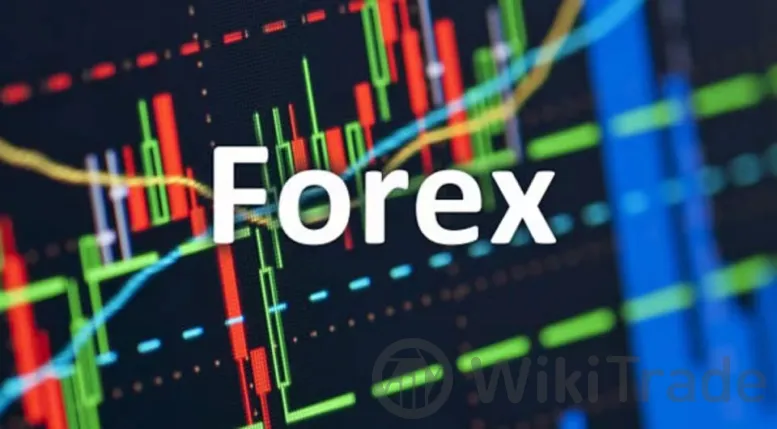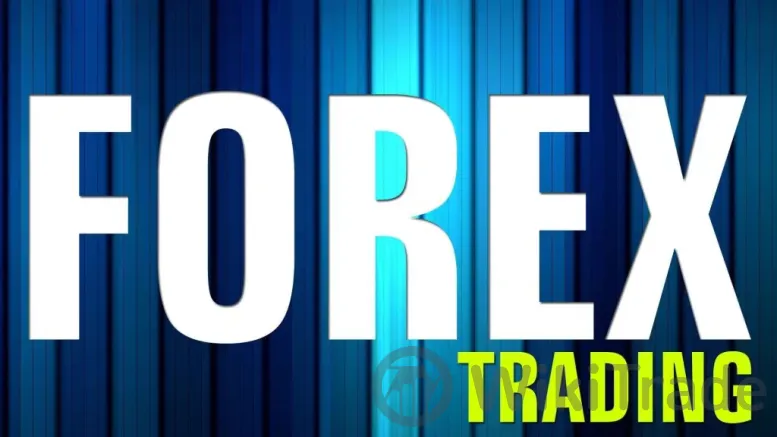Can You Trade Forex on Interactive Brokers?
Abstract: Yes, you can trade forex on Interactive Brokers. They offer competitive fees, advanced trading platforms like Trader Workstation (TWS), over 100 currency pairs, and a range of order types .
In the vast domain of global investments, the allure of forex trading lies in its remarkable liquidity and its round-the-clock operational hours, drawing the attention of myriad investors. As a pioneering online brokerage, Interactive Brokers (IB) furnishes a broad spectrum of trading tools and asset classes, including forex. This article is crafted to delve deeply into the mechanics of conducting forex transactions on the Interactive Brokers platform, addressing its distinct features, the trading procedure, the fee structure, and how to optimize strategies for trading success.

Interactive Brokers Platform Overview
Interactive Brokers, established in 1978 and headquartered in the United States, is an international financial services company that provides direct access to global trade markets. The company operates under the rigorous oversight of numerous financial regulatory bodies, including the U.S. Securities and Exchange Commission (SEC) and the Commodity Futures Trading Commission (CFTC). This stringent regulation ensures that Interactive Brokers maintains high standards of transparency and integrity, offering a secure trading environment for its clients.
Interactive Brokers offers an assortment of trading platforms that cater to a diverse trading community, including the Trader Workstation (TWS) desktop application, mobile apps, and web versions. These platforms boast high levels of customization and support automated trading strategies, making them ideal for investors of varying skill levels—from beginners to seasoned professionals. The platforms are designed with cutting-edge technology that allows for real-time data streaming, comprehensive risk management tools, and a robust suite of analytical tools, thereby empowering traders to make informed decisions swiftly and efficiently.
Starting Forex Trading on Interactive Brokers
To begin trading forex on Interactive Brokers, potential traders must first set up an account, which includes meeting a minimum capital requirement typically set at $10,000. This initial deposit underscores the platform's commitment to attracting serious traders who are ready to engage actively in the forex market. The account registration process is comprehensive, requiring identity verification and proof of funds to ensure compliance with global financial regulations and to safeguard the platform from financial crimes such as fraud and money laundering.
Interactive Brokers offers an extensive selection of over 100 currency pairs, encompassing major global currencies like the US Dollar, Euro, and Japanese Yen, as well as less commonly traded exotic currencies. This diverse range allows traders to explore opportunities across different currency markets, enhancing their ability to diversify their investment portfolios, hedge against possible economic downturns, or capitalize on geopolitical events that might influence currency values. The availability of such a wide array of trading pairs provides traders with the flexibility to select strategies that best fit their investment goals and risk tolerance.

Trading Process and Operational Guide
When trading forex on the Interactive Brokers (IB) platform, particularly through the Trader Workstation (TWS), traders have access to a myriad of order types that can significantly enhance trading precision and strategy execution. The common types of orders include:
Market Orders: These orders are executed at the current market price. They are used when traders want immediate entry or exit from the market, ensuring that the order is executed but not guarantee the price.
Limit Orders: This order type allows traders to specify the price at which they are willing to buy or sell a currency pair. It ensures price but not execution, as the market may never reach the limit price.
Stop Loss Orders: These are crucial for risk management, allowing traders to set an exit point for a losing trade to prevent further losses if the market moves unfavorably.
Stop Limit Orders: Combining the features of stop and limit orders, these are activated at a specified stop price but will only fill at the limit price or better. This helps manage slippage in volatile markets.
Executing these orders on the TWS platform is streamlined for efficiency. Traders can set parameters that fit their trading strategy, and execute orders directly from the interface, which provides real-time market data and sophisticated analytical tools to help in decision-making.
Leverage is a powerful tool in forex trading, allowing traders to control large positions with relatively small amounts of capital. However, the use of leverage amplifies both gains and losses. Heres how traders can use leverage while implementing sound risk management strategies on Interactive Brokers:
Risk Assessment: Before using leverage, traders should assess their risk tolerance and the amount of capital they can afford to risk.
Setting Stop Losses: To protect capital, setting stop-loss orders on all leveraged positions is crucial. This prevents large losses in fast-moving markets.
Diversification: Trading different currency pairs or engaging in other asset classes can spread risk.
Monitoring and Adjustments: Continuously monitor the market and make adjustments to leverage and positions based on current market volatility and external economic events.

Trading Costs and Fee Structure
Interactive Brokers offers competitive pricing structures for forex traders, which include commissions and spreads:
Commissions: IB typically charges a tiered commission based on the monthly trade volume, making it more cost-effective for high-volume traders.
Spreads: The spread, or the difference between the buy and sell price, can vary widely depending on the currency pair and market conditions. IB's access to multiple liquidity providers helps ensure that spreads remain competitive.
Apart from trading costs, there are several non-trading fees that traders should be aware of:
Account Management Fees: Depending on the type of account and the services used, IB may charge a fee for account management.
Withdrawal Fees: There may be fees associated with withdrawing funds from an IB account, depending on the method of withdrawal and the currency.
Strategies and Resources
Interactive Brokers (IB) provides an extensive array of tools that are essential for effective forex trading, encompassing both fundamental and technical analysis. The platform's strengths include:
Chart Analysis Tools: IB offers advanced charting capabilities that enable traders to visualize market trends and patterns. These tools support multiple time frames and include a variety of indicators such as moving averages, RSI, and Fibonacci retracements, crucial for technical analysis strategies.
Economic Calendar: Staying ahead of market-moving events is critical in forex trading. IBs economic calendar integrates seamlessly into the trading platform, providing real-time alerts on economic announcements from around the world, such as interest rate decisions, employment reports, and GDP numbers.
News Feeds: Real-time news streaming is available directly through the TWS platform. This service aggregates news from reputable financial news sources, offering traders insights into how current events are affecting the forex markets.
Interactive Brokers is committed to supporting traders in developing their skills and knowledge through a comprehensive suite of educational resources:
Webinars and Seminars: IB regularly hosts webinars and seminars that cover a variety of topics, from beginner trading techniques to more advanced strategies and market analyses. These sessions are typically led by experienced traders or industry experts.
Tutorials and Trading Courses: For self-directed learning, IB offers a range of tutorials and trading courses designed to educate traders on the fundamentals of forex trading, the use of the platform, and the implementation of various trading strategies.
Customer Support: IB provides robust customer support services. Traders can access support through multiple channels including phone, email, and live chat, ensuring they can receive help whenever needed, be it technical issues or trading inquiries.

Legal and Tax Considerations in Forex Trading
Forex trading on platforms like Interactive Brokers is subject to stringent regulatory requirements to ensure fair and transparent market practices. IB is regulated by several authorities globally, including the U.S. Securities and Exchange Commission (SEC) and the Commodity Futures Trading Commission (CFTC). Compliance with these regulations ensures that traders are protected and that the trading environment is secure and equitable.
The tax treatment of forex trading profits can vary by country. In many jurisdictions, forex trading is taxed as capital gains or investment income. Interactive Brokers provides tools and resources to help traders track their earnings and losses for tax reporting purposes. However, it is always advised to consult with a tax professional to understand specific tax obligations.

FAQ
Is Interactive Brokers Suitable for Beginners to Trade Forex?
Interactive Brokers (IB) is equipped with a comprehensive suite of tools and resources that can be highly beneficial for beginners. However, it's known for its robust platform that caters primarily to experienced traders. For beginners, here are a few key features and considerations:
Educational Resources: IB offers a variety of educational tools and resources, including webinars, courses, and tutorials that are specifically designed to help beginners understand the basics of forex trading and how to use the platform effectively.
Demo Account: One of the significant advantages for beginners is the availability of a demo account. This allows new traders to practice trading forex without risking real money, providing a hands-on way to learn about market dynamics.
User Interface: While the trading platform is highly advanced, it might be overwhelming for beginners due to its complexity. However, once familiar with the system, it provides powerful tools that are advantageous in forex trading.
What is the Minimum Account Requirement for Trading Forex on IB?
Interactive Brokers offers one of the most competitive pricing structures in the market and has a relatively low barrier to entry:
Minimum Deposit: There is no minimum deposit required to open a forex trading account with IB, but to trade forex, a minimum balance of $2,000 or equivalent in other currencies is recommended to support margin requirements.
Account Types: Several account types are available, tailored to different trader needs, including individual, joint, and family office accounts. Each type may have specific requirements and benefits, so selecting the appropriate one based on personal trading goals and financial status is crucial.
How to Set Stop-Loss and Take-Profit Orders on the IB Platform?
Setting stop-loss and take-profit orders is crucial for managing risks and securing profits in forex trading:
Setting Up Orders: On the TWS (Trader Workstation) platform, you can easily set these orders by right-clicking on the existing position or when placing a new trade. You will find options to add stop-loss and take-profit levels in absolute numbers or as a percentage of the current price.
Order Types: IB offers several order types that can be used as stop-loss or take-profit orders, including market, limit, and trailing stop orders, giving traders flexibility based on their risk tolerance and trading strategy.
Automation and Alerts: Traders can also set automated rules for execution when certain market conditions are met, and set up alerts to monitor their positions closely, ensuring they remain responsive to market changes.
How Does Forex Trading on IB Compare to Other Platforms?
Interactive Brokers stands out in several key areas when compared to other forex trading platforms:
Pricing: IB offers low commissions and financing rates, and tight spreads due to its large network of forex liquidity providers.
Market Access: Traders have access to 105 currency pairs, including major, minor, and exotic pairs, which is more comprehensive than many other brokers.
Tools and Research: The platform provides advanced charting tools, risk management tools, and market research that are often superior to those offered by other brokers, making it a preferred choice for serious forex traders.
How to Manage and Reduce Risks When Trading Forex?
Managing risks is paramount in forex trading. Here are several strategies to consider:
Leverage Management: Use leverage cautiously. While it can amplify gains, it can also magnify losses. Traders should use leverage according to their risk tolerance and stop-loss limits.
Diversification: Do not put all your capital into a single currency pair. Diversifying across different pairs can reduce risk.
Continuous Education: Stay informed about market conditions, economic indicators, and geopolitical events that can affect currency movements. Use IBs educational resources to stay updated.
Risk Management Tools: Utilize IBs risk management tools to set proper limits and alerts to safeguard your investments.
Here are some related information resources.
https://www.interactivebrokers.com.hk/php/webhelp/Making_Trades/Multi_Currency_Trades.htm
https://youtu.be/4YfwPxORf2M?si=GSZO783Su1RndWjX




Top News
 WikiTrade
WikiTrade WikiTrade
WikiTrade WikiTrade
WikiTrade WikiTrade
WikiTrade WikiTrade
WikiTrade WikiTrade
WikiTrade WikiTrade
WikiTrade WikiTrade
WikiTrade WikiTrade
WikiTrade WikiTrade
WikiTrade


